Nuclear-free New Zealand
Where can I find information about the nuclear-free movement in New Zealand?
(Years 11-13)
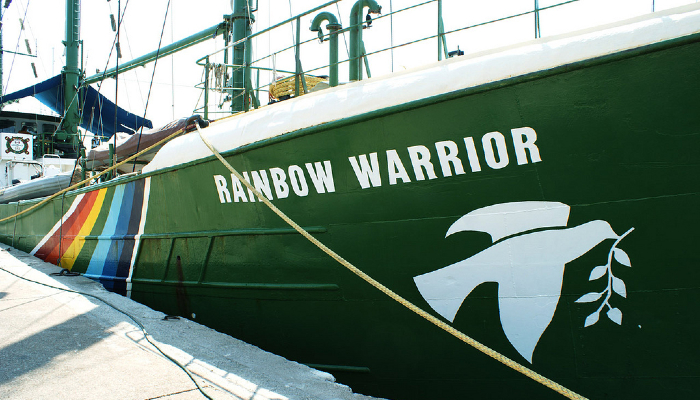
Image: Rainbow Warrior II - Greenpeace from Cyr0z on Flickr.
Entry last updated: 15/07/22
Introduction
New Zealand is a nuclear-free zone, which means no nuclear weapons or nuclear powered ships are allowed in our territory. Find out how New Zealanders protested to make sure we were nuclear-free, and how incidents like the bombing of the Rainbow Warrior impacted on the nuclear-free movement.
Nuclear testing in the Pacific
After World War Two, there was frequent testing of nuclear weapons in the Pacific Ocean. In addition, in 1951 New Zealand signed the ANZUS treaty, which put New Zealand under the protection of the United States and meant that the United States could use nuclear weapons if New Zealand was attacked.
This is a great website for information about New Zealand Aotearoa. If we go all the way down the page we can see that the website belongs to the Ministry for Culture & Heritage, so the information is well-researched and reliable.
For a good introduction to this topic, go to Politics and Government.
Then look under the heading Protest and Reform for the link to Nuclear-Free New Zealand.
Check out the second page which is all about Nuclear testing in the Pacific.
There is also information on the ANZUS treaty on this website.
Use the search box at the top of the page.
Enter the keyword 'ANZUS'.
Then look through the results.
The page ANZUS treaty comes into force gives basic facts about the signing of the treaty.
For more background about the ANZUS treaty, look down the page to Read more on NZHistory and select the link Treaties and alliances — The Cold War
Tips: Search words, or keywords, are the most important words in our question. Usually it’s better to leave out small words like ‘the’, ‘a’ and ‘of’ and just choose the main ones, eg [ANZUS]. We can always change our keywords or add more if we need to.
Te Ara: The Encyclopedia of New Zealand
Te Ara is another website from the Ministry for Culture & Heritage. It has some great information about the nuclear-free 1980s, the end of ANZUS, and how this affected our relationship with the United States, and Australia.
Go to the section on Government and Nation, and select New Zealand and the World.
United States and New Zealand has a story on Nuclear-free 1980s that covers information about New Zealand's relationship with the United States_._
The story Pacific Islands and New Zealand mentions nuclear testing in the Pacific and the creation of the South Pacific Nuclear-Free Zone Treaty in August 1985.
Tips: We like sites like this because they’re reliable. You can tell because of their web address – they have either .govt or .ac, meaning they are from government or educational organisations. They’re also New Zealand sites, so relevant for us.
Australia New Zealand Reference Centre Plus
Australia New Zealand Reference Centre Plus is part of EPIC, a collection of reliable databases covering lots of different topics. It is put together especially for New Zealand school students and helps to answer questions like this.
Enter the words 'nuclear testing Pacific' in the search box and make sure you select Full Text from the results, as this will bring up complete articles for you to read.
You will find a lot of articles about nuclear-free Pacific, the Rainbow Warrior and the environmental damage done by nuclear testing in the Pacific Islands.
Use the search words 'nuclear-free New Zealand' to find other articles related to this topic
Tips: To get to the EPIC resources you will need a password from your school librarian first. Or you can chat with one of our AnyQuestions librarians between 1 and 6pm Monday to Friday and they will help you online. Some EPIC databases may also be available through your public library.
Funded by the Ministry for Culture and Heritage, Ngā Taonga Sound & Vision is New Zealand’s audio-visual archive.
Find the search box at the top of the page and enter 'nuclear testing'.
Select Available online from the box of filters.
Listen to the audio links French nuclear tests and Report on nuclear testing at Mururoa.
Watch the video Mururoa 1973.
These have information about New Zealand's stand on nuclear testing in the Pacific Islands.
This site is part of the Pacific Virtual Museum pilot project funded by the Department of Foreign Affairs and Trade in Australia and put together by the National Library of New Zealand and National Library of Australia.
Use the search words 'nuclear testing' in the search box.
Read the article Radioactive waste leak imminent in the Pacific.
Watch the video Nuclear Legacy Sail with Okeanos Marshall Islands.
Both these stories are from The Coconet TV — a collection of Pacific content, funded by NZ on Air.
Tips: Websites that have .org or .net in the address can have good information, but you need to assess how reliable it is. Check the About us link on the website, if you can find one. That can tell you what the organisation’s mission and values are.
Anti-nuclear protests
New Zealand protested against nuclear testing in the Pacific, even though our defence agreements, like ANZUS, meant we had to engage with nuclear weapons in other ways. To find out more about anti-nuclear protests, check out these sites.
Te Ara: The Encyclopedia of New Zealand
Te Ara has a page all about protests and parades, including anti-nuclear protests.
Go to the section on Economy and the City, then choose The City.
Then go to Parades and protest marches.
This covers a lot of different protests including Anti-nuclear protesting.
For a good introduction go to Politics and Government.
Then look under the heading Protest and Reform for the link to Nuclear-Free New Zealand.
Check out the pages Ship Visits and Sinking of the Rainbow Warrior
Both reflect how public opinion about nuclear warships and nuclear testing was starting to change in New Zealand.
New Zealand Foreign Affairs & Trade
This Ministry is about building and promoting New Zealand values, interests and policies with countries around the world. One of these interests is taking New Zealand's nuclear-free policy to the world.
Go to About us and look for MFAT at 75.
Find the story Taking a nuclear-free policy to the world.
It is about New Zealand diplomats who have taken our fight for nuclear disarmament to the United Nations and International Court of Justice.
This is another database from the EPIC collection of resources. There are some articles here about nuclear-free New Zealand.
Use the keywords ‘Nuclear-free’ to search and have a look through the results.
One good one is about New Zealand's involvement in the Mururoa Protest in 1995.
Another is The Sword of Damocles: New Zealand has a nuclear reaction which is about the USS Halibut, an atomic-powered submarine that visited Wellington Harbour in 1960.
Tips: To get to the EPIC resources you will need a password from your school librarian first. Or you can chat with one of our AnyQuestions librarians between 1 and 6pm Monday to Friday and they will help you online. Some EPIC databases may also be available through your public library.
Te Papa is New Zealand's national museum located in Wellington. It has an online collection on a number of topics.
Go to the heading Discover the collections, then select Collections Online from the drop-down menu_._
Search the collection for 'Nuclear-free New Zealand'.
Explore the topic Nuclear Free New Zealand.
Check out the number of nuclear-free badges and other memorabilia from various anti-nuclear movements.
Tips: We like sites that are from government or other reputable organisations, because we can trust the information. You can sometimes tell these sites by their web address – they might have .govt or .edu in their address – or by looking at their About us or Contact pages.
NZ On Screen is New Zealand's showcase of television, film and music videos. There is a great collection of videos about the people and policies behind going nuclear-free.
Use the search bar at the top of the page and enter 'nuclear-free New Zealand'.
Select the collection of videos called Nuclear-free New Zealand.
The videos When a Warrior Dies, (about the Rainbow Warrior, a Greenpeace ship on a protest mission) and Nuclear Reaction are examples from several different decades, so you can see how different eras viewed nuclear testing and nuclear-free New Zealand.
Tips: Websites that have .com or .co in the address can have good information, but you need to assess how reliable it is. Check the About us link on the website, if you can find one. That can tell you what the company’s mission and values are.
New Zealand's public radio service on New Zealand news, current affairs, Pacific, Te Ao Māori, sport, business including opinions and analysis.
Look for the tab called Topics at the top of the page.
Look down the page to the section on Collections.
You will find a collection of audio on the bombing of the Greenpeace ship Rainbow Warrior, it had set out to protest against French nuclear testing on Mururoa atoll in the Pacific.
Nuclear-free legislation
Anti-nuclear public opinion eventually led to nuclear-free laws. New Zealand's prime minister at the time, David Lange, banned nuclear powered or nuclear-armed ships from entering New Zealand waters. Find out about the politics and people behind this legislation.
This site is owned by the New Zealand Parliamentary Counsel Office, which is responsible for drafting and publishing most of New Zealand's laws.
Enter 'nuclear-free' into the search box.
Find the New Zealand Nuclear Free Zone, Disarmament, and Arms Control Act 1987.
You will also notice another link called Nuclear-Test-Ban Act 1999.
This details prohibitions and offences against nuclear testing in New Zealand.
Tips: We like sites that are from government or other reputable organisations, because we can trust the information. You can sometimes tell these sites by their web address – they might have .govt or .edu in their address – or by looking at their About us or Contact pages.
NZHistory also has information about nuclear-free legislation.
Go to Politics and Government.
Then look under the heading Protest and Reform for the link to Nuclear-Free New Zealand.
Check out the page about Nuclear-free legislation.
Dictionary of New Zealand Biography
DNZB is part of Te Ara. It contains over 3,000 biographies of New Zealanders who have ‘made their mark’ on this country. It does not include people who are alive.
Look for the biography of David Lange.
Choose the letter L for his last name.
Then select the name David Russell Lange to read about his nuclear politics.
Christchurch City Libraries hosts a series of podcasts about different issues. You can listen to a discussion on the New Zealand Nuclear-free Zone, Disarmament and Arms Control Act 1987, the impact it had, and what followed after.
Use the search drop-down menus to search the Website for Blog Posts for 'nuclear free'.
You can either listen to the podcast or read a transcript.
Tips: Websites that have .com or .co in the address can have good information, but you need to assess how reliable it is. Check the About us link on the website, if you can find one. That can tell you what the company’s mission and values are.
Books
Try these books, or ask your school librarian or local librarian for more recommendations:
Peace, power & politics: how New Zealand became nuclear-free by Maire Leadbeater
Standing Upright Here New Zealand in the Nuclear Age 1945-1990 by Malcolm Templeton
Death of the Rainbow Warrior by Michael King
Eyes of fire: the last voyage of the Rainbow Warriorby David Robie
My Rainbow Warrior: Auckland, 1985 by Sharon Holt.
SCIS no: 1834458
Topics covered
Related content
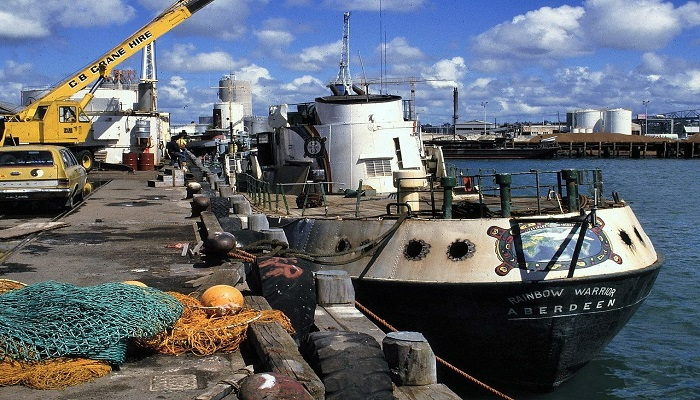
Rainbow Warrior bombing 1985
Where can I find information about the bombing of the Rainbow Warrior?

Nuclear-free NZ & the Rainbow Warrior
Discover resources related to nuclear-free Aoteaora New Zealand and the Rainbow Warrior bombing.
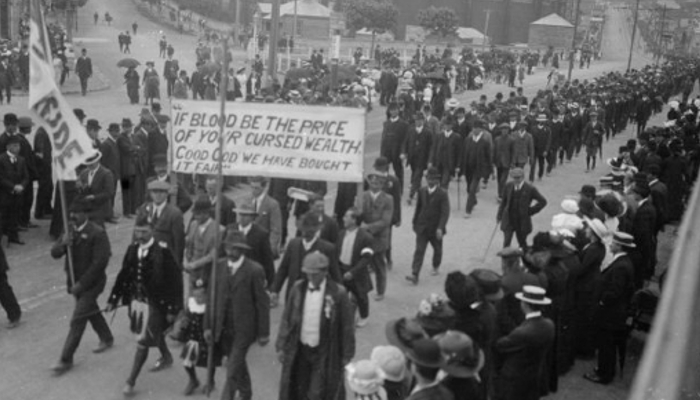
NZ protest
Discover resources related to protests in New Zealand.
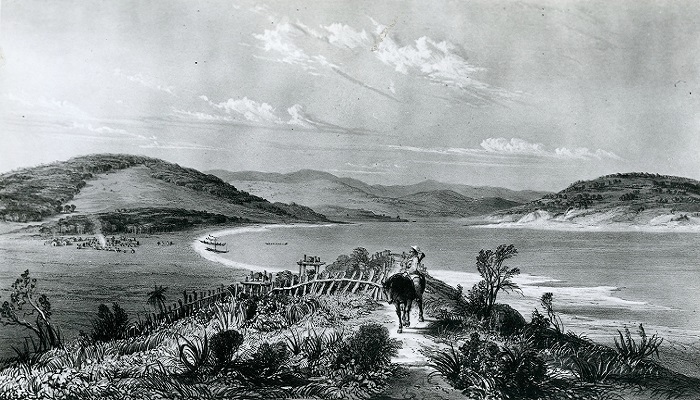
History (New Zealand)
Where can I find information about New Zealand history?
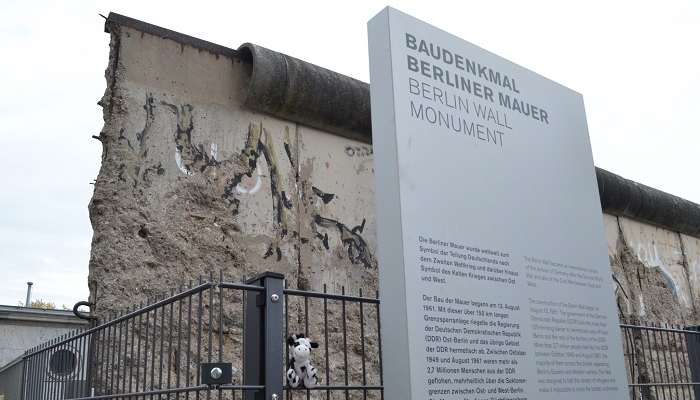
Cold War (1947-1991)
Where can I find information about the Cold War?
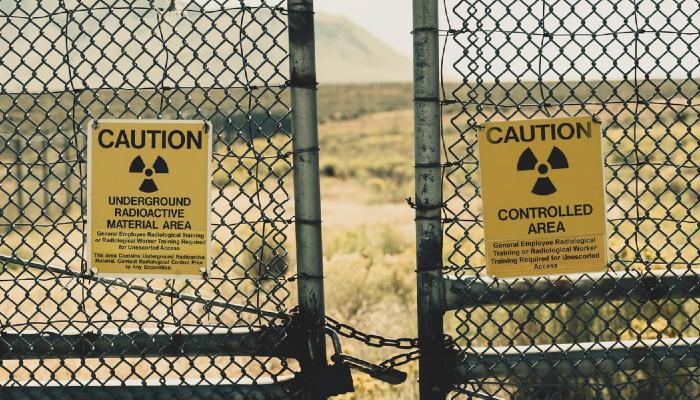
Nuclear disasters
Where can I find information about nuclear disasters?
